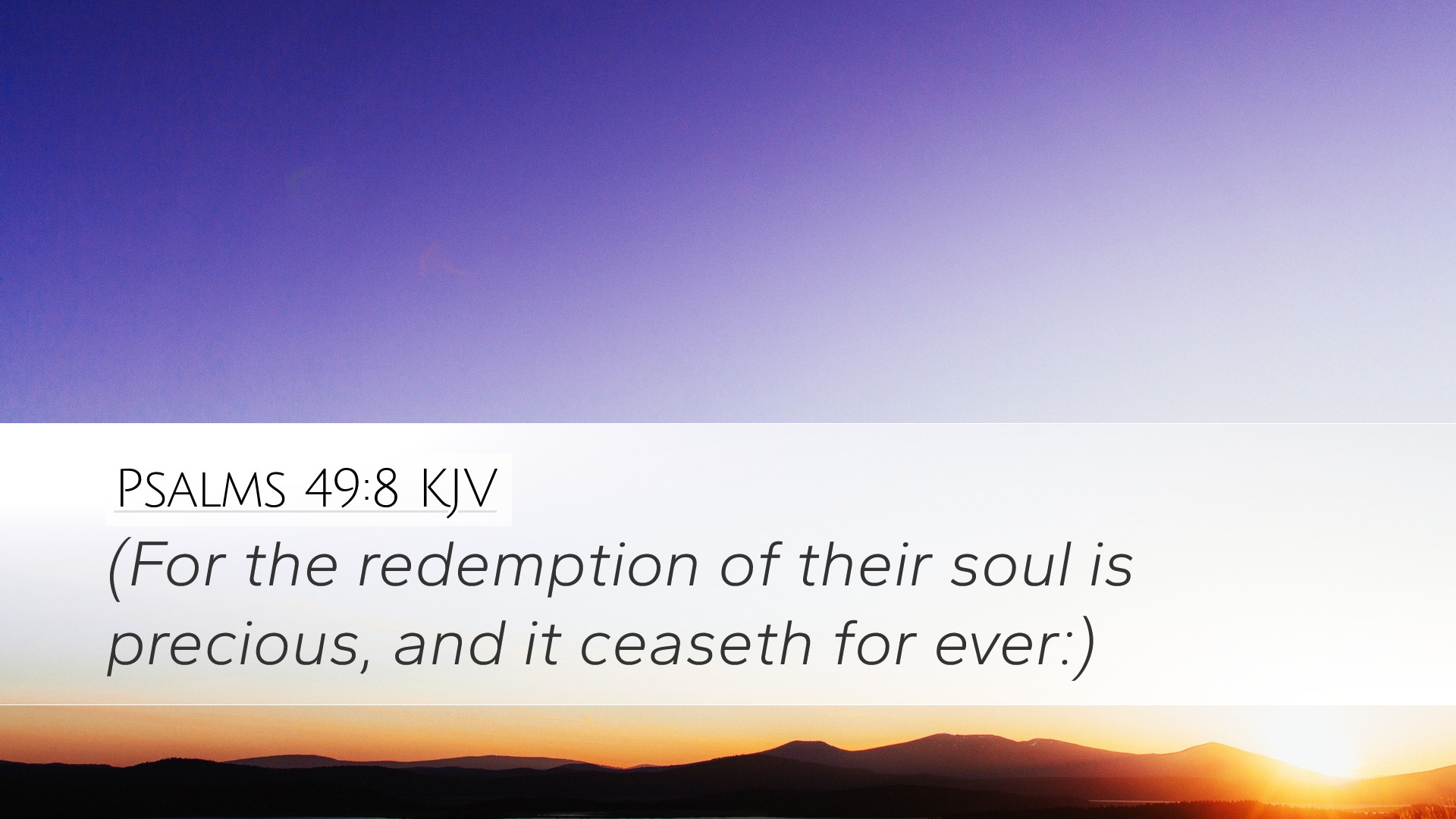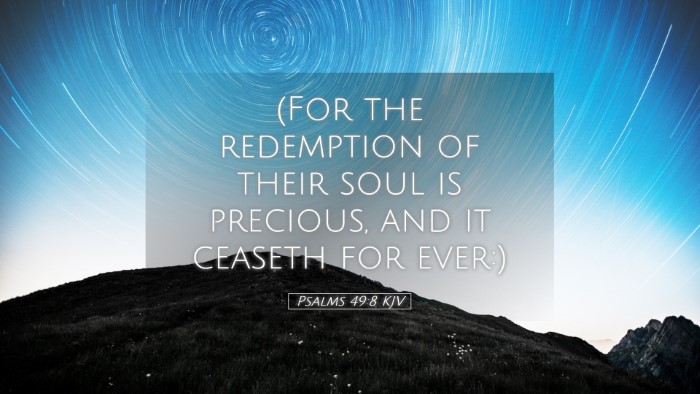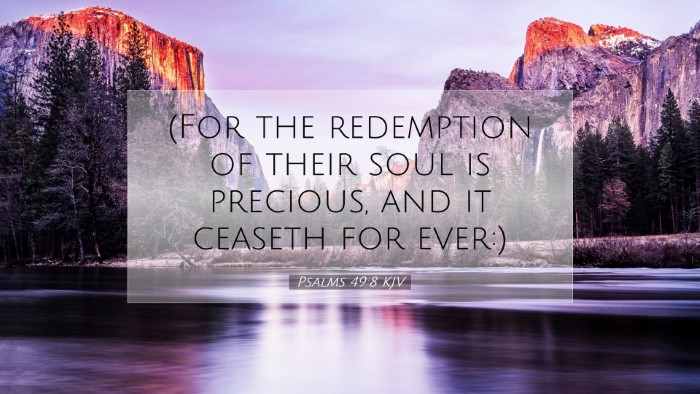Bible Commentary on Psalms 49:8
Introduction: Psalms 49 is a reflective psalm that addresses the themes of wealth, mortality, and the fate of the unrighteous. Verse 8 serves as a pivotal point that succinctly encapsulates the message of the psalm. The insights derived from various public domain commentaries shed light on the theological implications of this verse.
Verse Text
"For the redemption of their soul is precious, and it ceaseth for ever." (Psalms 49:8)
Thematic Overview
In this psalm, the writer contemplates profound truths about life and death, especially in the context of wealth and prosperity. It serves as a reminder that material riches do not equate to spiritual security or ransom from death.
Insights from Matthew Henry:
- Redemption's Cost: Henry emphasizes that the term "precious" indicates an immense value. The inherent worth of the soul cannot be overlooked; it highlights the gravity of human life and the eternal consequences of our choices.
- The Futility of Wealth: He cites that no riches, however great, can be a substitute for redemption. Material wealth cannot buy back a soul, underscoring the idea that the soul's redemption is beyond monetary value.
- Mortality's Equality: The psalmist reminds us that all men, regardless of their wealth, face the same fate in death. Henry suggests that death is the great equalizer, bringing the rich and poor alike to the same judgment.
Insights from Albert Barnes:
- Human Limitations: Barnes discusses the limitations of human redemption efforts. Human efforts to secure eternal life through wealth are ineffective as the "soul’s redemption is precious." Here, he points to the spiritual bankruptcy of relying on material goods.
- Continuity of Existence: He notes that though one may be wealthy in life, in death, wealth is useless. The concluding thought of perpetuity in spiritual matters is paramount, as it transcends earthly existence.
- The Inevitability of Death: He reflects on the nature of death and how it is a point that no wealth can negate. Barnes encourages contemplation on the state of the soul before God post-death.
Insights from Adam Clarke:
- Redemption and Its Price: Clarke explains that the term "redemption" indicates a ransom price, which cannot be paid by wealth alone. Understanding the term within the context of salvation is crucial, as believers know that Christ paid that price.
- Reflection on Vanity: He observes that many trust in their riches as security, but these are vapors, fleeting and temporary, urging readers not to place their hopes on transient matters.
- The Eternal Perspective: Clarke adds that understanding the preciousness of one's soul requires a shift to an eternal perspective. The value placed on the soul should compel believers to seek divine communion and assurance of redemption.
Theological Implications
The overarching implications of Psalms 49:8 remind believers that the pursuit of worldly riches is ultimately transient. A soul's worth cannot be measured against earthly possessions, and the spiritual reality is one that demands a divine approach to redemption.
The Doctrine of Redemption
Millennia of theological discourse affirm the doctrine of redemption through Christ. This echoes the sentiments found in the psalm, where the very essence of redemption is highlighted as valuable. Emphasizing themes of grace and faith, the verse invites reflection on the nature of our trust—be it in material wealth or spiritual security through Jesus Christ.
Moral Reflections
For pastors and theologians, Psalms 49:8 serves as a call to correct the misaligned priorities of congregations. The propensity to secure futures with worldly means should be replaced with a focus on spiritual well-being and the eternal impact of choices.
Conclusion
The psalmist’s poignant declaration that "the redemption of their soul is precious" stands as a timeless truth that resonates through the ages. It compels every believer, scholar, and theologian to wrestle with the reality of mortality, the weight of their choices, and the immeasurable value of their souls before the Creator.


